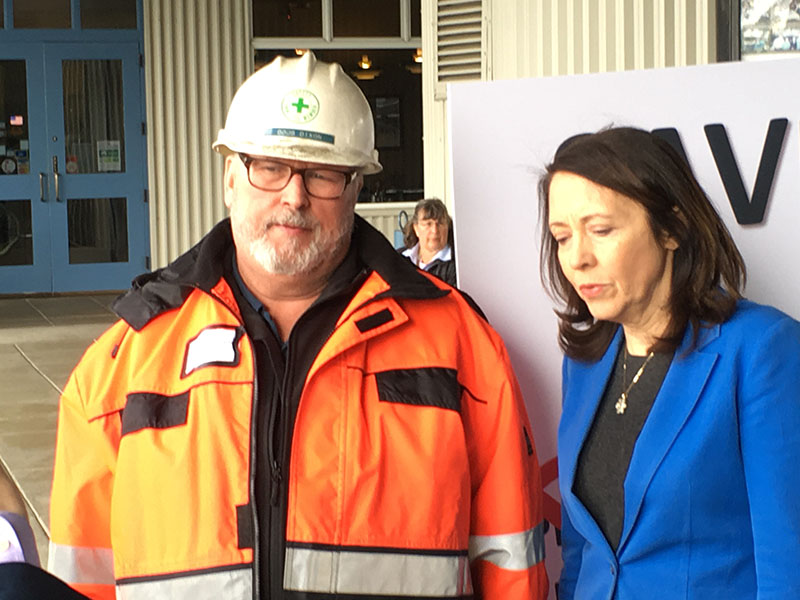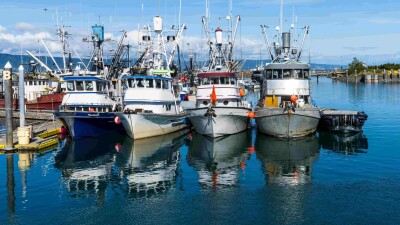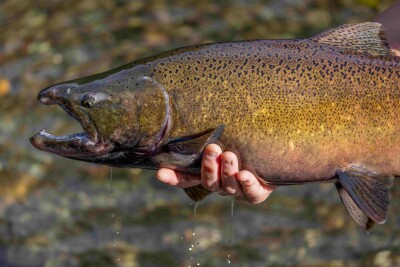U.S. Sen. Maria Cantwell, reacting to the latest development in the Pebble Mine saga, on Friday accused the Trump administration of “siding with Canadian miners over U.S. fishermen."
Cantwell's comments came at a Seattle rally held the day after the Environmental Protection Agency signed an agreement to begin withdrawing proposed restrictions on development in Alaska’s Bristol Bay watershed. The agreement is contained in a court settlement with the Pebble Limited Partnership, which sued the EPA, charging it had colluded with opponents of the mine. As a result, the Pebble Partnership can undertake an application process expected to take years.
“Scott Pruitt has gotten it wrong,” said Cantwell, a Washington Democrat, referring to the Trump-appointed head of the EPA She called Pebble “the wrong mine in the wrong place.”

The Upper Tularik Floodplain in the Bristol Bay watershed in Alaska. EPA photo.
The Bristol Bay watershed is regarded as the world’s most productive salmon ecosystem. Advocates for the fishing industry say it is more than that. “It’s not just about salmon,” said Doug Dixon, general manager of Seattle’s Pacific Fishermen Shipyard.
A significant number of larger boats that harvest cod, crab and other species serve as salmon tenders when they are not fishing. “Our shipyard is full of vessels that support the salmon fishery,” Dixon said. “Without that salmon run we would lose all of the infrastructure and all of the jobs.”
Cantwell said Pebble wouldn’t merit consideration if it were proposed anywhere but in Alaska and noted that major players have walked away from the project. Indeed, mining giants Rio Tinto and Anglo American both abandoned stakes in the proposed mine, writing down more than $400 million between them.
The Pebble mineral deposit is valued in the hundreds of billions. It is believed to be world’s largest undeveloped copper ore body and is also rich in gold and molybdenum. But extracting the minerals would involve containing billions of tons of tailings that would spell doom for Bristol Bay if released.
In a study published in 2013, the University of Alaska Anchorage’s Institute of Social and Economic Research pinned the annual value of Bristol Bay’s commercial salmon fishery at $1.5 billion.
“Everyone is dependent,” said Tiara Turner, quota manager for the Freezer Longliner Coalition, who comes from a family of Bristol Bay salmon fishermen and attended the press conference.
“Salmon is the economic engine of the community,” she said. “It’s our future.”







